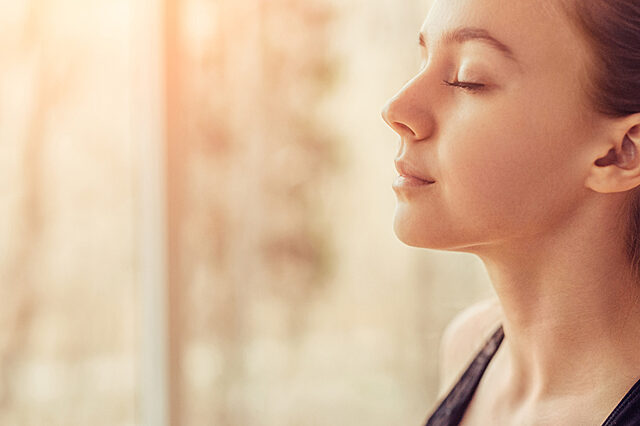Mindfulness: Focus On What You Can Control
So how do we use our own minds and bodies as a primary resource to help manage our anxiety? Mindful meditation, a practice that has been around for literally thousands of years, is a good place to start.

“With mindfulness, you can establish yourself in the present in order to touch the wonders of life that are available in that moment.” –Thich Nhat Hanh
Most of us are experiencing some levels of stress and anxiety during the uncertain times we are living in with the COVID-19 pandemic. However, we each have a resource available to us at all times — our body. So how do we use our own minds and bodies as a primary resource to help manage our anxiety? Mindful meditation, a practice that has been around for literally thousands of years, is a good place to start.
“Mindfulness is about being fully awake in our lives,” said Jon Kabat-Zinn, the founding director of the Stress Reduction Clinic and Center for Mindfulness in Medicine at the University of Massachusetts Medical School. “It is about perceiving the exquisite vividness of each moment. We also gain immediate access to our own powerful inner resources for insight, transformation and healing.”
Mindful meditation
Mindful meditation provides a way to deepen and develop our natural capacity for sustained attention and insight in order to respond to a given situation, particularly with more calmness and mental clarity. What does that mean for the average person with no meditation experience? It is a simple practice that can be done any time or anywhere. Initially, find a place to focus, such as feeling your body sitting in the chair, or standing and noticing the sensation of your feet on the ground. Then, take a moment just to notice the thoughts or feelings you have without judging them. Perhaps you notice you feel fear or anxiety about the uncertainties with COVID-19. Finally, take a few minutes to just “be” in the moment without thinking about the future problems or concerns by observing, breathing, being still and quiet.
Walking mediation
You can also practice mindful mediation through a walking meditation exercise. Put away your phone and other distractions. Take a short walk outside, noticing the sounds, feeling the sensations of the sun and wind, and looking at the trees or birds. Simply being in nature is a way to practice mindful meditation.
Although a somewhat simplistic way of describing meditation, science tells us it actually works. A study at Massachusetts General Hospital measured how mindfulness was able to reduce stress through MRI showing changes in gray matter density in the part of the brain known as the amygdala, where the perception of emotions such as anger, fear and sadness are processed.
Exercise meditation
Additionally, mind-body exercise such as yoga, tai chi and qigong are physical ways to practice meditation and also gently incorporate physical activity and meditation together.
Try one of the meditation apps such as Insight Timer or Calm, and have a teacher guide you through a mindful meditation practice. You may find that listening to one of the meditation teachers guiding you through a practice helps you lessen your anxiety and be more focused during these stressful times.
More tips and resources on keeping stress at bay during COVID-19 can be found here.